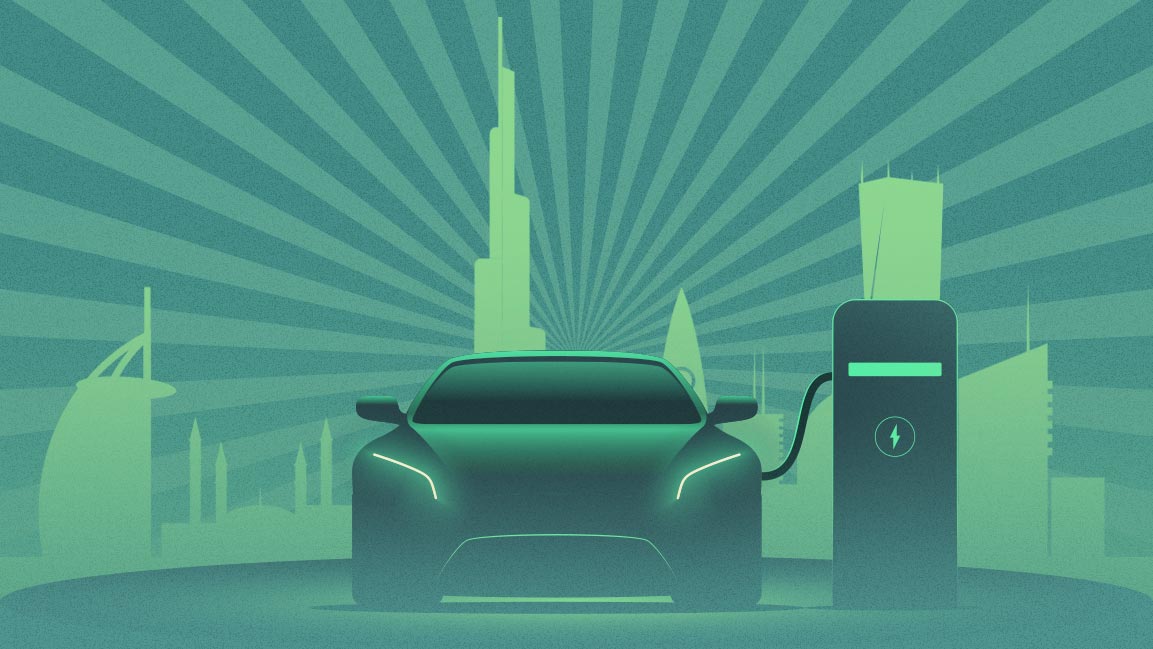- | 9:00 am
Planning to buy an EV? Here’s the convincing you need
Concerns about running out of battery in the middle of a highway remain an obstacle in the way of EV adoption.

For years we’ve been driving to work, weekend getaways, or road trips in our gasoline-powered cars while having to deal with pollution during traffic snarls, hardly realizing the environmental costs of how we are collectively contributing to greenhouse emissions.
It’s not like you aren’t considering hybrids, hydrogen-powered or electric cars, but then again, what’s stopping you from making that switch if we are to breathe free in years to come?
But like many city dwellers in the Middle East, Omar has doubts about being stuck in the middle of nowhere when the car runs out of battery or cannot locate charging points when he’s cruising across the highway.
This fear of not having enough power to reach one’s destination, categorized as “range anxiety” among new EV owners, isn’t entirely new for Middle East motorists.
However, addressing the issue is crucial for the government across the gulf to set ambitious targets for the electrification of vehicles. For instance, Dubai wants 10% of all cars to be hybrid or electric by 2030, while Saudi Arabia wants 30% of vehicles to be emission-free in the same period. On the other hand, Qatar has a target in mind for this coming year itself.
Climate change and air quality are undeniably pressing issues for everyone in the region, which is at risk of becoming uninhabitable by the next century since temperatures soaring to more than 53 degrees Celsius in Kuwait is no joke. On the one hand, some people are delighted to board electric buses or battery-powered hail cabs. On the other hand, private car owners still need more clarity on finding affordable EVs, managing them, and navigating the Middle East without losing track of charging stations.
BUT WHERE DO WE START?
If it’s about quick, accessible charging for Omar and his peers, UAE has 650 stations, and Qatar aims to set up 100 this year. The real game-changer is awareness about affordable models, charging networks, and innovation that makes it easy for motorists to own EVs.
So how are the government, app developers, and inventors reassuring potential EV owners? Let’s take a look.
NEED FOR SPEED
Moving away from fossil fuel is an environmentally friendly, great idea, but waiting for an hour to power up your EV instead of the five-minute stopover at a gas station doesn’t sound all that convenient, does it?
But the quick evolution of technology has enabled Qatar’s power and water corporation to install charging stations that power up EVs within 10 minutes.
Ultra-fast chargers at Abu Dhabi’s Yas Island can do the job in less than 15 minutes, which is still 25 times faster than most devices around, and Dubai’s electric and water authority has launched its own set of quick-charging stations. So all you need to do is plug it in, grab a snack, and you are ready to go in a matter of minutes at most.
MAP OUT YOUR CHARGING SCHEDULE
Driving into uncharted territory is an adventure, but not knowing where to recharge when your EV runs out of battery is a disaster, which is why apps in the Middle East guide motorists towards the nearest charging points.
UAE-based app EV Labs first notifies you if the vehicle needs to be charged and then highlights charging stations in your surroundings.
For those yet to buy an EV, the platform calculates the amount of emission and the ownership costs you’ll save, along with expenses on a round trip to work, while you schedule test drives at your preferred location from the app.
Dubai’s electricity and water authority have a digital dashboard to update EV drivers about power consumption, bill payments, and transactions related to charging.
Another option is the Monta software, enabling the Middle East’s EV owners to reserve their spot at charging stations for a hassle-free experience. Now that information and guidance at your fingertips should be enough to drive you to adopt electric mobility.
INNOVATION MAKES THE TRANSITION UNSTOPPABLE
Recharging EVs as quickly as refueling your old car sounds great, but what if you can keep on driving for miles without having to pull over at all? Sounds too good to be true, right? Considering how electric mobility has accelerated innovation, it’s not surprising that Dubai had tested technology for EVs to draw power from the road while moving way back in 2020.
The mechanism for buses and cars involves a wireless charging grid embedded under the road that transfers electricity to the vehicle through a magnetic field to a coil under the EV that picks up magnetic flux. Such trials have inspired inventors such as Saudi Arabia’s Mutlaq bin Sanhat Al Otaibi, who made a device that uses light generators linked to your car’s wheels to convert the vehicle’s kinetic energy into electricity for the batteries.
GO GREEN TO STRIKE GOLD
Your efforts to create a lower carbon footprint by buying an EV won’t go unnoticed in the UAE, where perks including free parking, free registration, and free Salik tags for toll gates await e-car drivers in Dubai. So not only does Omar get to make his surroundings eco-friendly by contributing to a record drop in emissions, he even saves money every day by doing so.
Yes, other green options such as green hydrogen are also emerging in the Middle East. Still, the way governments and an entire tech infrastructure is backing up e-car owners in the Middle East, swapping your bulky old gas guzzler for that slick new Tesla EV, seems like a pretty good deal.







































